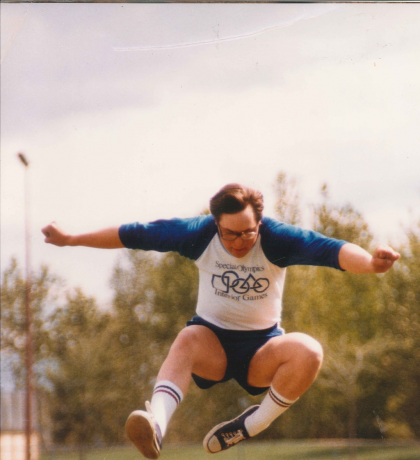
On October 28, 1980, founding members of the SOBC community signed the constitution that brought Special Olympics BC into existence, officially launching the Special Olympics movement here in British Columbia.
Prior to this, Special Olympics BC was mainly a concept. Although there were a number of Special Olympics events and activities taking place around the province, they had no formal ties to each other and no connection to a common, united vision.
On November 26, 1980, SOBC’s constitution was approved. This marked the moment the organization was born and when the work towards creating a vibrant, cohesive, and impactful Special Olympics community could truly begin.
Bill Bean, SOBC’s first Executive Director from 1981 to 1984, described these early days in Make No Small Plans, the Special Olympics Canada 40th anniversary book.
“While SOBC had been incorporated as a society, it did not have a Board, and the only evidence of a connection to the national and international movement was a shoebox filled with letters and receipts,” wrote Bean. “I inherited this shoebox on my first day on the job as ‘field worker.’ I was given a card table, chair, and telephone at Sport BC in an office that was shared with four other organizations.”
In Make No Small Plans, Bean describes the pivotal moments that helped transform a collection of independent activities into a Special Olympics movement in British Columbia.
Firstly, early contributions from the Canadian Progress Club helped take the organization to a higher level. “They were our angels,” said Bean.
Secondly, representatives from across the province agreed that athletes were better served if everyone worked together under a common, collective vision. SOBC Regions were identified and official, standardized programs were developed.
Finally, the organization set its sights on the first SOBC Summer Games in 1984. The Games became “a beacon for athletes from across the province and a common goal for us all to focus on.” After the resounding success of these Games, “SOBC was no longer the new kid on the block. Our critics became our friends and the organization has never looked back,” Bean recounted.
From these early seeds have grown thousands of empowering Games experiences, a strong and dedicated community of more than 3,900 volunteers supporting over 4,800 athletes, and countless life-changing moments for athletes with intellectual disabilities across B.C.
“The very best organizations eventually emerge as leaders and in fact, do end up making their world a better place,” said Bean. “I see Special Olympics BC as a perfect example of such an organization.”
